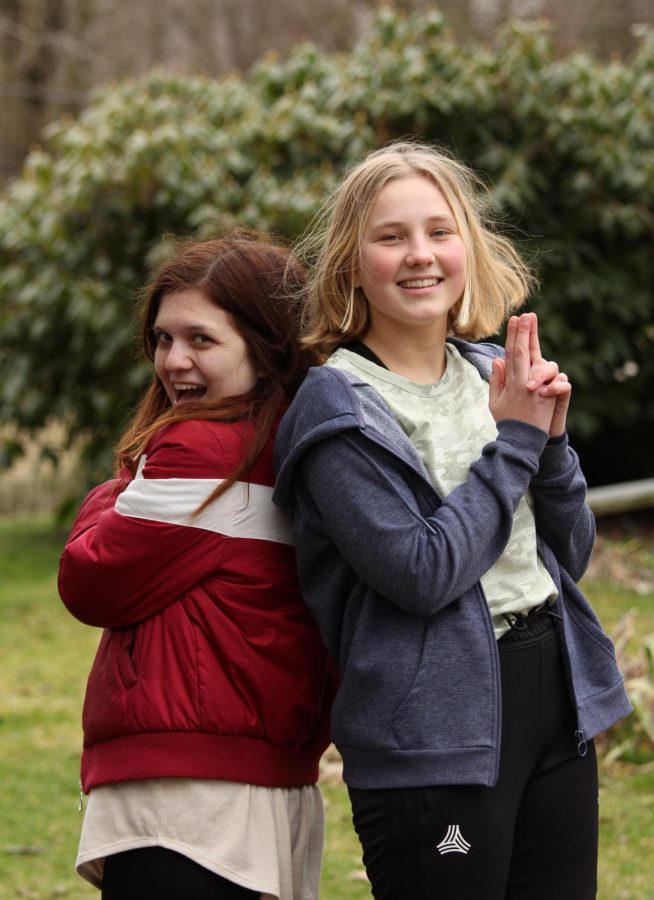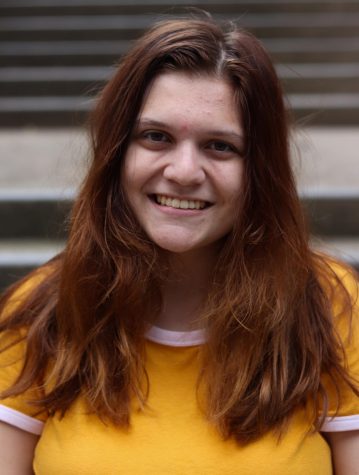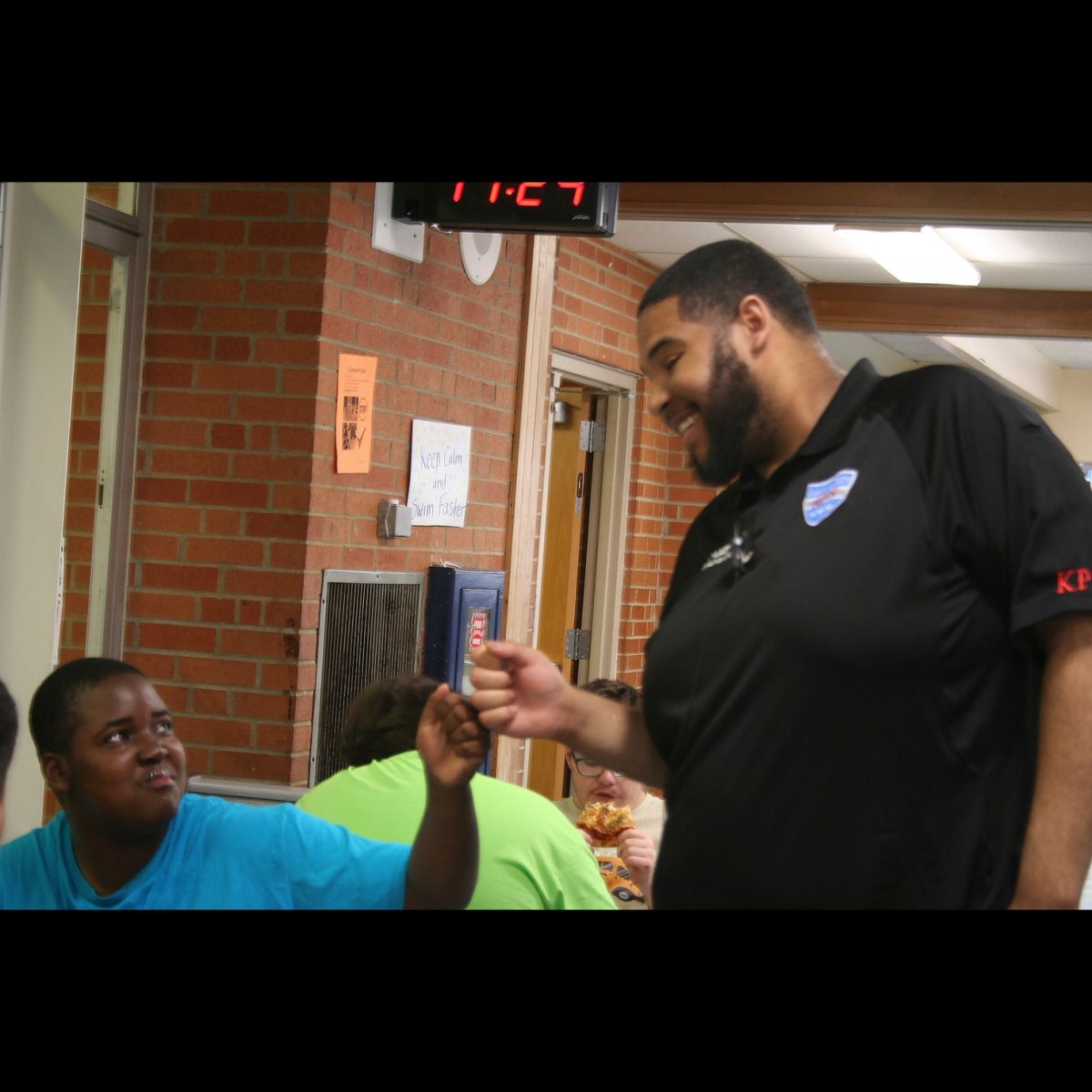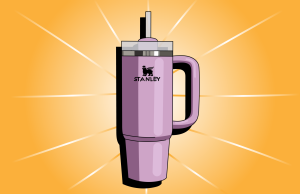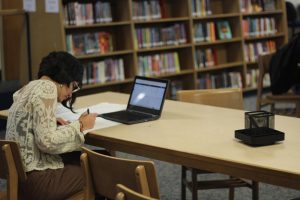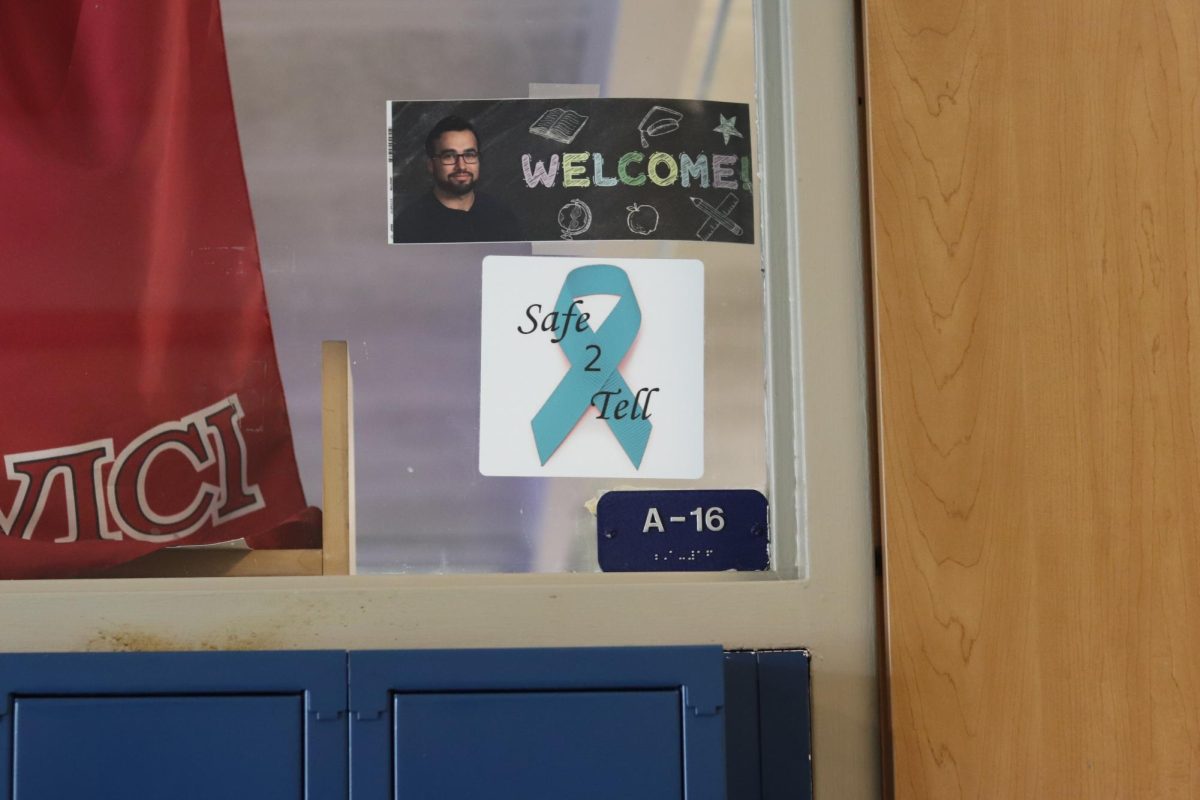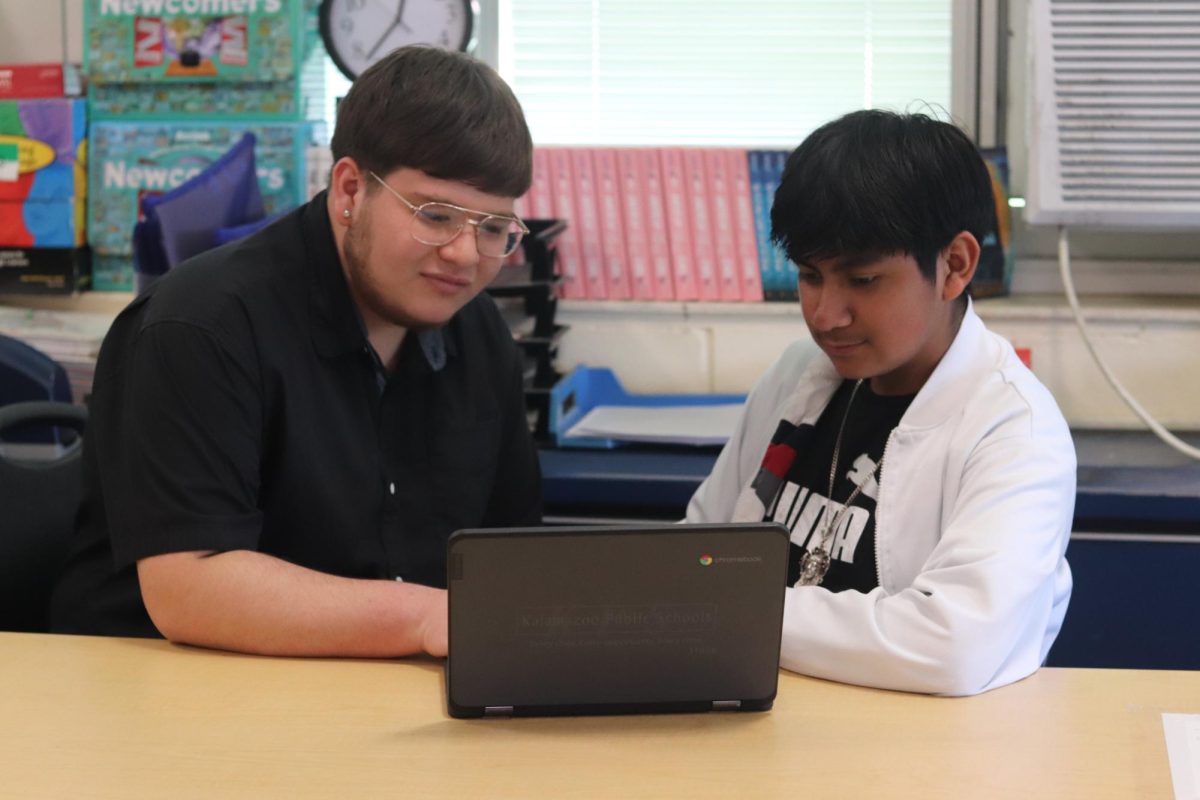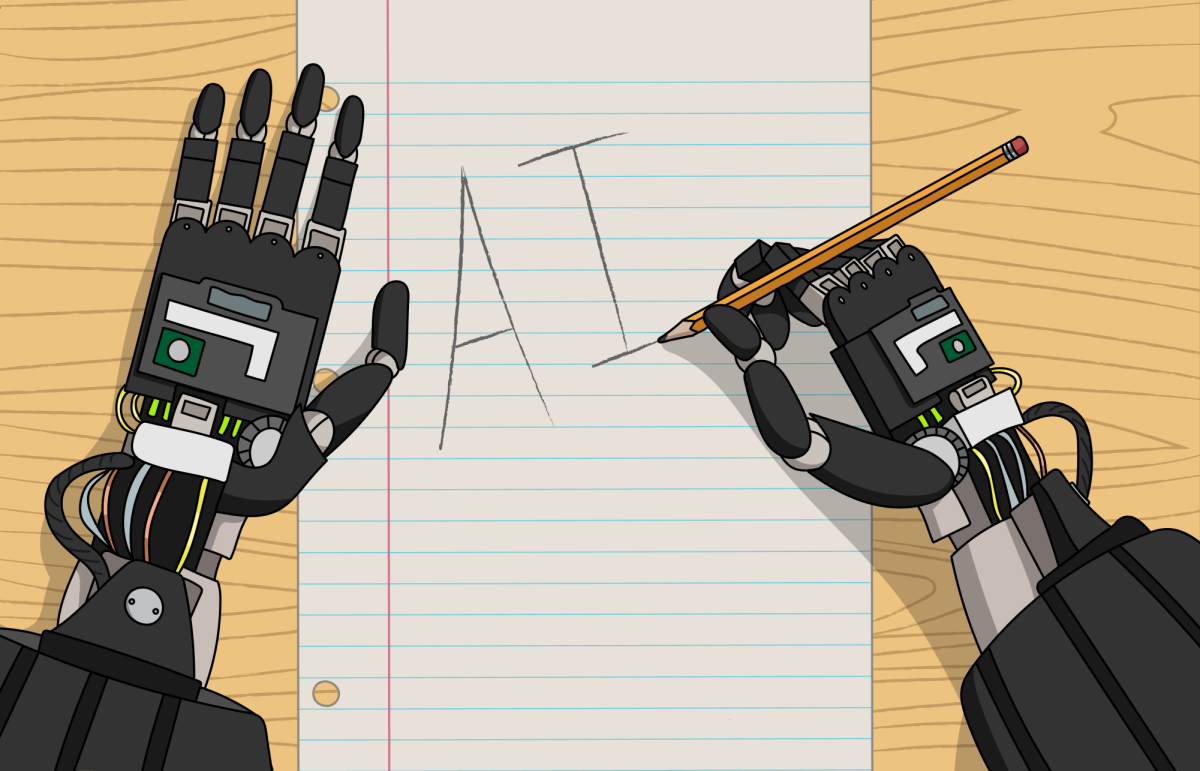Former Loy Norrix exchange students share what’s happening in their home countries
Credit: Jim Ratliff
Jeanie Gould-McElhone and Elisa Matz pose for a photo the day before Matzs flight home.
June 11, 2020
Only 57 days.
Elisa Matz was a sophomore exchange student at Loy Norrix High School for just 57 days when Covid-19 sent her home to Lürschau in northern Germany. Elisa’s exchange continues in weekly conversations with myself and the two other exchange students we’ve hosted over the last five years: Paula Montoro-Aragon from Spain and Mizuka Fujii from Japan. Through Marco Polo videochat, we are able to see each other and keep up on what’s happening during the pandemic, reporting weekly from three continents.
“We send our videos and then it says on my phone that you are talking to me,” said Matz. “I want to see it because I can answer you and you can answer me right away and that’s pretty cool, and we don’t have to pay anything and that’s really cool.”
Paula, who lives outside Madrid, Spain, agrees.
“It’s really nice to see how you guys are doing,” said the LNHS Class of 2019 graduate.
Even though she “graduated,” Paula is still in high school. That’s because exchange students don’t actually earn a diploma in the United States, and it’s also because in Europe, Australia, New Zealand and Canada, most students attend school through Grade 13.
Germany, Spain and Japan closed schools in March, with Japan being the first one to do so beginning March 1. Spain came next, then Germany and Michigan followed suit around the same time.
“Things are getting kind of back to normal little by little,” Paula told us recently. “This week is my last week of school. I’m really happy but that doesn’t mean I have to stop studying because we now know that our college admissions exams will be the 6th, 7th and 8th of July.”
“We’re going into phase one this Monday [May 25], so that means I’m going to be able to see my friends again, go to restaurants and go shopping and stuff even though most places in Spain have been in phase one for almost two weeks now.” Montoro-Aragon continued, “We are a little bit delayed because it is a big city, and it was the beginning of the coronavirus.” Montoro-Aragon recently explained that she believes that, “We will be on the last phase of the thing by the end of July, so that is exciting.”
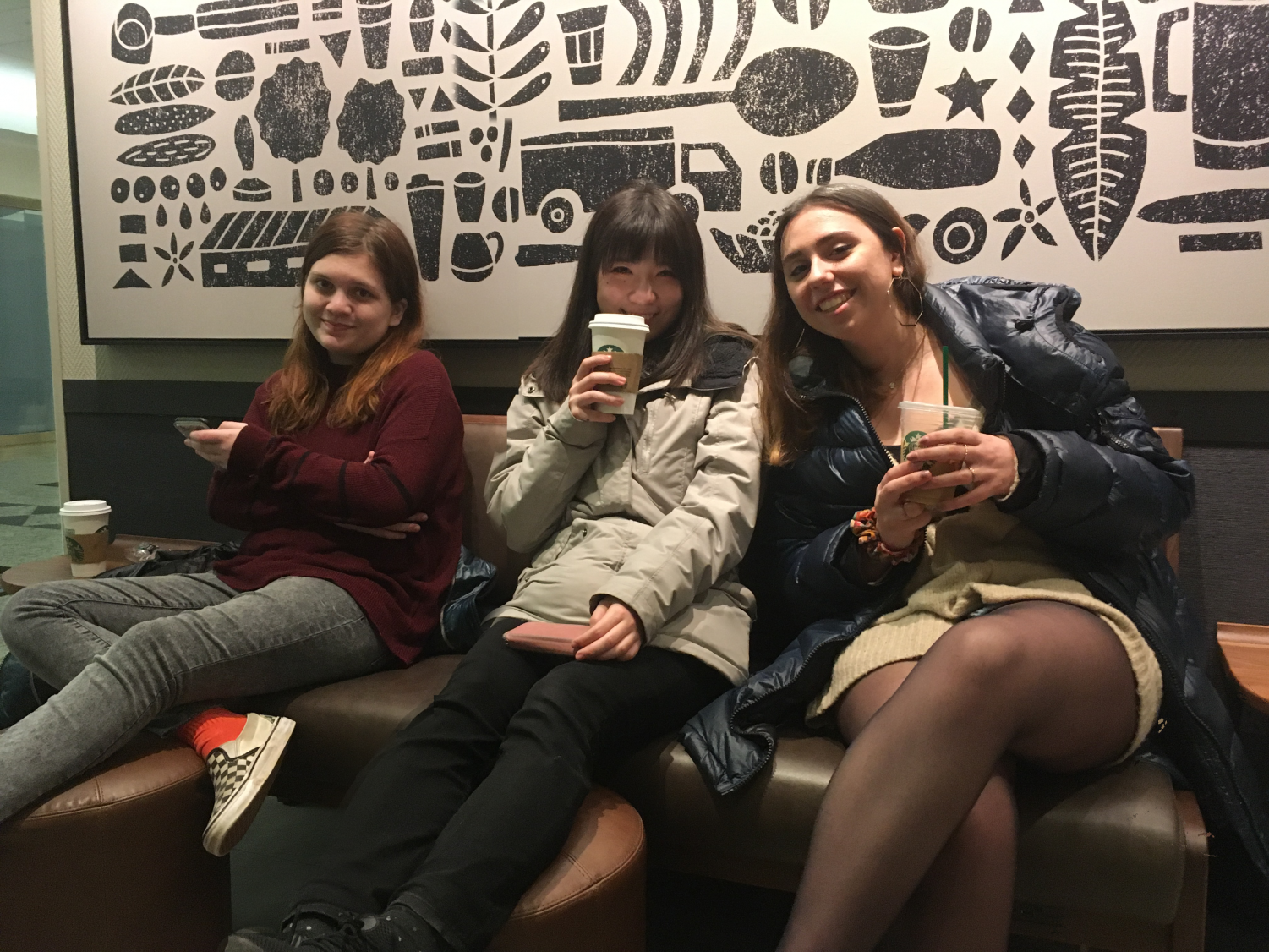
Elisa described Germany as “step-by-step, and hopefully it’s not too much.” She began school again on Monday, May 25. But it’s different now, with smaller classes.
“At the end of April already, some people started, but only the people who will graduate. They have already started their last exams to make their graduation,” Elisa explained. “Now it’s group three, it’s our turn, so I will go to school on Monday, May 25, and on Tuesday we will have handball training, of course with distancing and stuff like that. Some people are saying we are doing too much too fast but we will see.”
Mizuka was a member of the Class of 2016 and is graduating from Waseda College in Tokyo and stopped taking in-person classes in March. A member of the LNHS Class of 2016, Mizuka said the Marco Polo sessions help her to brush up on her English.
“This is good for learning English because I forget most of the English phrases. I’m enjoying this English lesson because I want to keep in touch with you,” said Mizuka, who has been drawing between online job interviews during the coronavirus state of emergency in Tokyo.
“It may take longer to get a job, but I’ll make it,” Mizuka said.
“The state of emergency [in Japan] was extended too, but the people are relatively calm,” Mizuka continued. “Everything is changed, and online, and the government finally decided to give everyone 100 thousand yen [$1,000] no matter how old they are. So even a baby can get $1,000. So the economy is good too.”
Looking at how countries around the globe are starting to open up, shows us that there is a light at the end of the tunnel and that we will also begin to transition back to normal life too.

